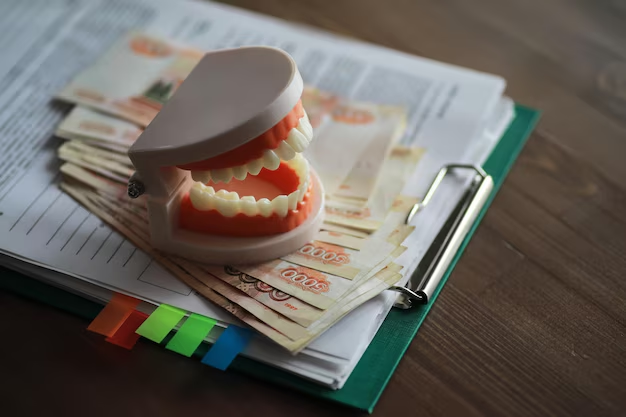Maximizing Your HSA: Can You Use It for Dental Expenses?
Navigating the intricacies of health savings accounts (HSAs) can feel like an overwhelming task. If you're trying to figure out whether you can tap into your HSA for dental expenses, you're not alone. This article delves into how HSAs work, the eligible dental procedures, and practical guidelines for optimizing these benefits. Prepare to take control of your healthcare spending with clarity and confidence.
🌟 What is a Health Savings Account (HSA)?
HSAs are tax-advantaged accounts designed for individuals with high-deductible health plans (HDHPs) to save for medical expenses. The money you contribute to an HSA isn't taxed at deposit or withdrawal if it's used for eligible healthcare expenses. This tax efficiency makes HSAs a popular choice for savvy savers seeking to lower their taxable income.
Key Features of HSAs:
- Tax Benefits: Contributions are made pre-tax, and if used for qualifying expenses, withdrawals remain tax-free.
- Portability: HSAs are not tied to your employer, so you keep the funds even if you change jobs.
- Flexibility: Funds can accumulate and grow over time, with potential investment options.
- No Expiry: Balances roll over year after year.
🦷 Understanding Dental Expenses: What Qualifies?
Before you swipe that HSA card at the dental office, it's essential to verify which procedures qualify as eligible expenses.
Common Eligible Dental Expenses
- Routine Cleanings and Exams: Regular check-ups are considered preventive and usually fall under qualified expenses.
- X-rays: Necessary for diagnostic purposes, these are often covered.
- Fillings and Crowns: Necessary treatments for maintaining dental health are typically eligible.
- Root Canals: Seen as medically necessary, thus generally covered.
- Extractions: If a tooth needs removal due to decay or damage, this is often eligible.
Non-Eligible Dental Expenses
- Cosmetic Procedures: Teeth whitening and veneers usually fall outside eligible categories.
- Non-prescription Products: General oral care products like toothpaste and electric toothbrushes are not covered.
- Cosmetic Orthodontics: Elective braces are typically not considered a medical necessity.
📈 Optimizing Your HSA for Dental Care
Understanding eligibility is just the first step. Here’s how you can strategically leverage your HSA for dental costs.
Plan Ahead for Major Procedures
If you're anticipating a significant dental expense, plan your HSA contributions accordingly. Maximize your tax-free savings by contributing early in the year, especially if your plan requires upfront payments.
Maintain Detailed Records
Documentation is vital when using HSA funds. Keep records of your dental visits and invoices to substantiate your HSA withdrawals, especially during tax season.
Consult with Your Dentist
Engage with your dental provider about upcoming expenses. They can help outline necessary treatments versus optional procedures, allowing you to allocate your HSA funds wisely.
🔄 Integrating Dental with Overall Healthcare Planning
Did you know that oral health can affect your overall well-being? Leveraging an HSA for dental care can be a smart, holistic approach to your health strategy.
Benefits of Oral Health
- Prevention of Other Health Issues: Gum diseases have been linked to heart health, highlighting the importance of routine dental care.
- Enhanced Quality of Life: Proper dental care can significantly improve self-esteem and daily comfort.
HSAs in the Larger Picture
Think of your HSA as a part of a broader health management plan. Integrate dental care with other medical expenses, allowing for comprehensive healthcare coverage from a financial standpoint.
🤔 What To Do If Dental Costs Aren't Covered?
Despite your best planning, sometimes dental expenses don't qualify for HSA coverage. Here’s how you can manage those costs:
Explore a Flexible Spending Account (FSA)
FSAs may offer greater flexibility for dental expenses. Unlike HSAs, funds do not rollover, but they cover a more comprehensive range of services.
Utilize Payment Plans
Speak with your dentist about available payment plans to distribute the financial burden over months instead of a lump sum.
Prioritize Preventive Care
Investing in regular cleanings and check-ups can prevent costly treatments down the road, effectively reducing your long-term dental expenses.
📋 Quick Reference Guide: Using Your HSA for Dental
Below is a concise breakdown to keep in mind:
| Type of Expense | Eligibility | Additional Notes |
|---|---|---|
| Routine Cleanings | ✅ Eligible | Preventive care, often covered |
| Fillings and Crowns | ✅ Eligible | Necessary for dental health |
| Cosmetic Procedures | ❌ Not Eligible | Consult for medical necessity |
| Toothpaste/Toothbrush | ❌ Not Eligible | General personal care not covered |
| Orthodontic Treatments | Consult Eligibility | Treatments based on necessity may vary |
💡 Bringing It All Together
Understanding and utilizing your HSA for dental expenses requires proactive planning and knowledge of what costs are legitimately covered. By comprehensively evaluating your needs, maintaining detailed records, and integrating dental care with broader health goals, your HSA can become a powerful tool in managing dental healthcare financially.
With this strategic guide in hand, you're better equipped to make informed decisions, maximize your savings, and maintain optimal dental health through thoughtful use of your HSA. Armed with these insights, you can now approach dental and healthcare expenses with confidence and clarity.

Related Topics
- a Health Savings Account
- Are Cough Drops Hsa Eligible
- Are Diapers Fsa Eligible
- Are Diapers Hsa Eligible
- Are Electric Toothbrushes Hsa Eligible
- Are Fsa Contributions Tax Deductible
- Are Gym Memberships Hsa Eligible
- Are Health Savings Accounts Worth It
- Are Hsa Contributions Deductible
- Are Hsa Contributions Pre Tax
